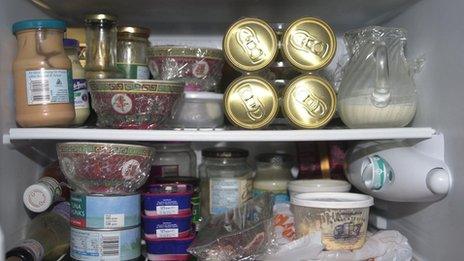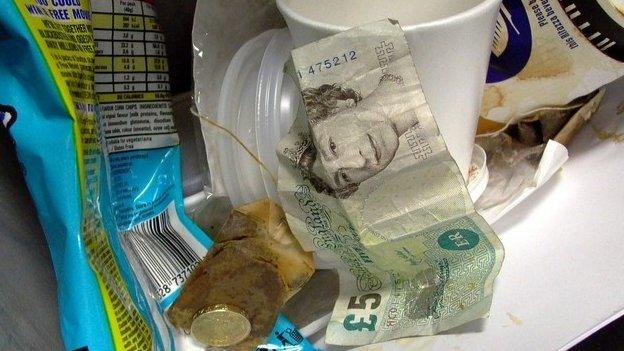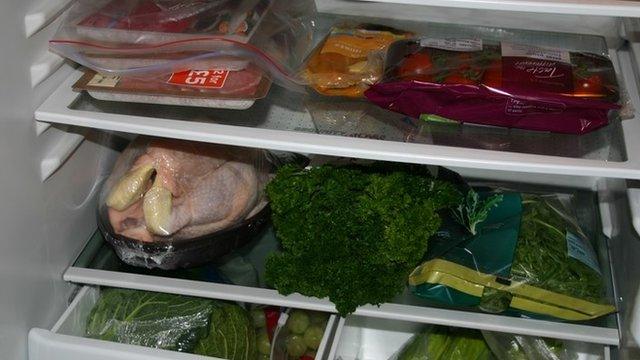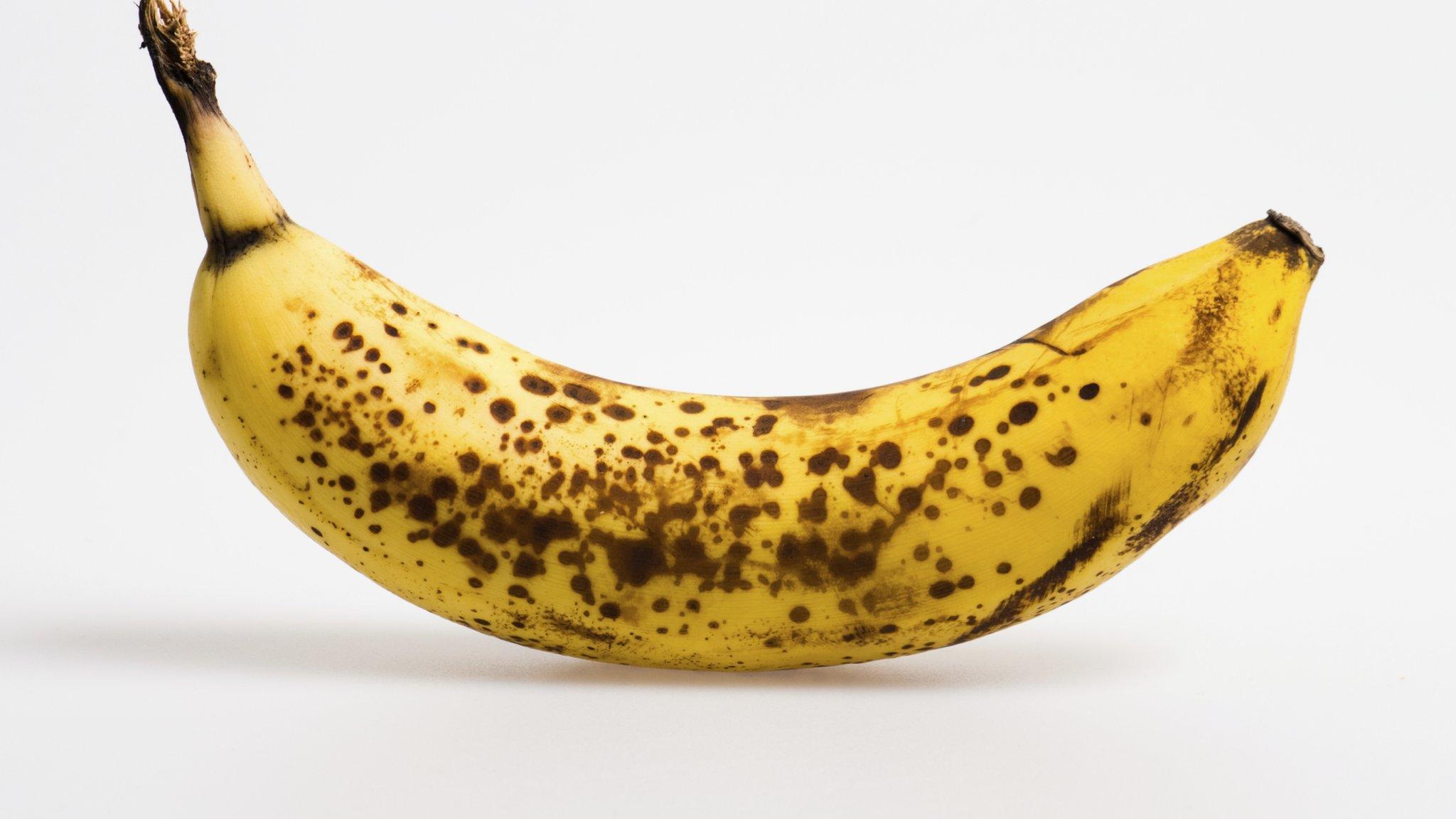Supermarket 'Bogof' deals criticised over food waste
- Published
- comments

15m tonnes of food is wasted in the UK every year
Supermarkets have been urged to end "buy one get one free" (Bogof) deals to cut the "morally repugnant" amount of food being thrown away by shoppers.
A report by the House of Lords European Union Committee, external says 15m tonnes of food is wasted in the UK each year.
Retailers are also told to behave more responsibly with farmers and avoid cancelling orders at the last minute.
However, the British Retail Consortium said the report "had not appreciated what is already happening".
In the report, the peers also criticised the EU's "fragmented and untargeted" attempts to tackle the problem.
More surplus food should be passed to charities and food banks, the committee said.
'Huge issue'
The report said retailers were able to "pass on" food waste "from the store to the household" by the use of special offers such as "buy one get one free".
Retail expert John Pal on the role of supermarkets
"It is clear that retailers must assume a far greater responsibility for the prevention of food waste in the home", it said.
Committee chairwoman Baroness Scott of Needham Market said food waste was "clearly a huge issue" in the UK and Europe.
She said: "Not only is it morally repugnant, but it has serious economic and environmental implications.
"The fact that 90m tonnes of food is wasted across the EU each year shows the extent of the problem and explains why we are calling for urgent action."
Their demands include a five-year plan by the European Commission to reduce waste across the EU.
The amount of food discarded by consumers in industrialised nations is equivalent to nearly the entire level of net food production of sub-Saharan Africa, the committee said.
'Crazy system'
Its report said more education was needed for consumers after peers were told only 37% of people knew the difference between "best before" and "use by" dates on food packaging.
Food can still be sold after its best-before date, while a use-by date is used on "highly perishable" products likely to become dangerous after a short period of time.
Lady Scott added: "There is also much that can be done domestically, and in particular by the big retailers, to reduce food waste.
"We are urging the supermarkets to look again at offers such as 'buy one get one free', which can encourage excess consumption which leads to food waste."
Oxfam's head of policy Mark Lawson suggested that the supermarkets' pricing policy was a big part of the problem.
"You've got this crazy system where some of the food is being given away and then often ends up getting wasted and the rest of the food is far too expensive," he told BBC 5 live.
The report also expressed "concern" about a cut to government funding supporting the work of the UK's Waste and Resources Action Programme (Wrap).
"There is a high risk of false economy if the cuts to Wrap's funding to support food waste prevention ultimately lead to resource inefficiency in terms of economic costs to businesses and households," it said.
Retail expert John Pal said the big four supermarkets were losing customers because of their complicated deals.
"What we are seeing is a bit of a change in consumers' purchasing patterns. They are getting a little bit fed up with this and we are seeing a shift from the big four supermarkets with the consumers voting with their feet and going to the Aldis and the Lidls," he said.
In response to the report, the British Retail Consortium said: "The government's own research body has concluded there is no evidence that promotions increase food waste.
"It is also worth remembering all major retailers are working to challenging government targets to cut food waste.
"Cutting food waste is a key sustainability issue but we need to focus on evidence based policy rather than being distracted by perception."
- Published4 February 2014

- Published21 January 2014

- Published21 October 2013
